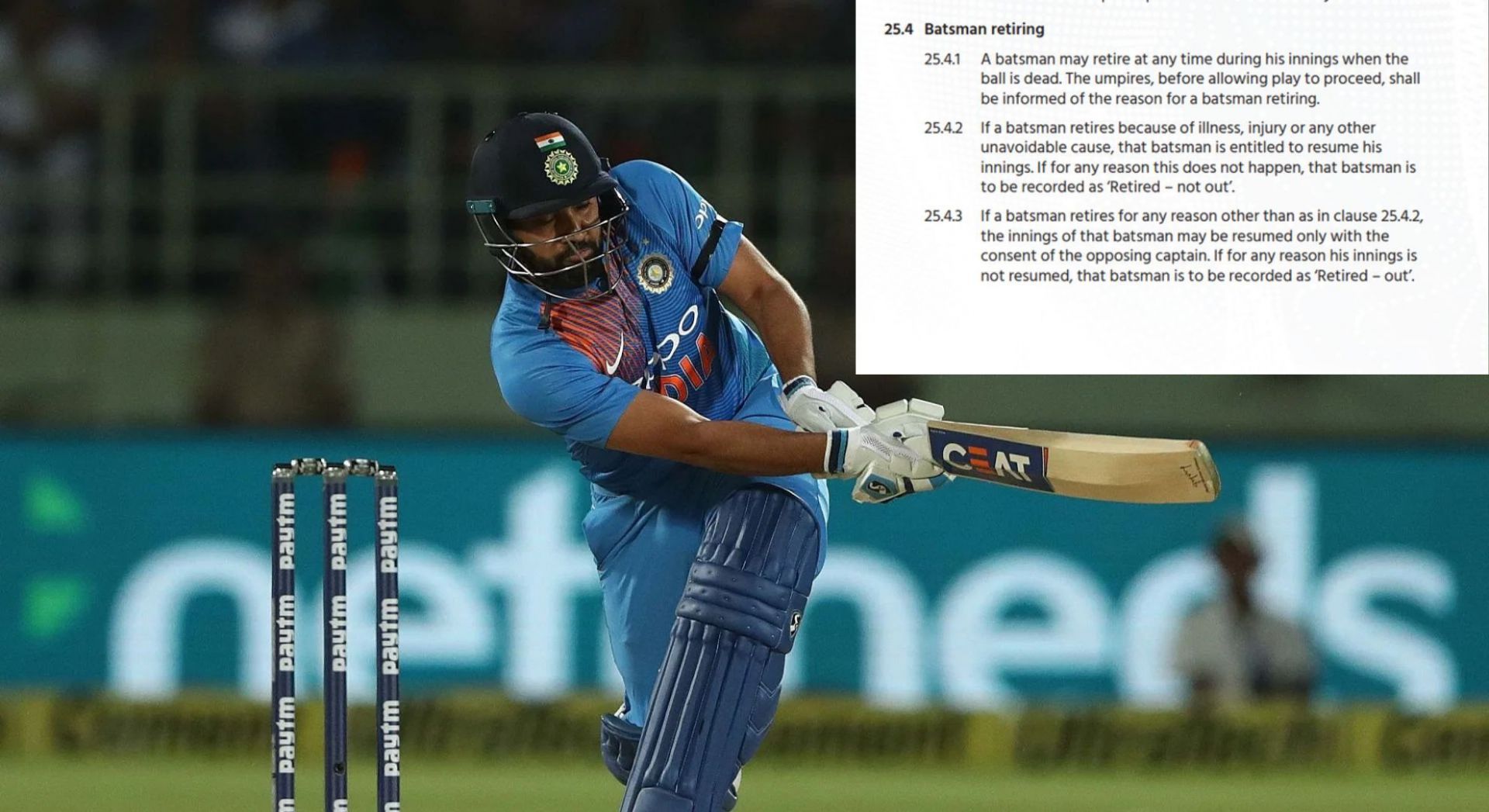
Rohit Sharma retired controvsersy - Looking at what the rule says
India captain Rohit Sharma landed in a bit of controversy over his decision to bat during the second Super Over in the thrilling third and final T20I versus Afghanistan on Wednesday. The controversy arose after the right-handed batter retired during the first Super Over.
Rohit smashed 13 runs off three balls, including two sixes, in the first Super Over, which ended in a tie. The 36-year-old retired hurt before the last ball and that helped India tie the first Super Over with an identical score of 16. Rinku Singh sneaked a quick single after replacing Rohit at the non-striker’s end.
Rohit then walked out to bat again in the second Super Over, scoring 11 runs off three balls, including a six and a boundary.
As per the rules, he was retired out and would only be allowed to resume his batting with the consent of the opposing captain.
What do the rules say about batting in a 2nd Super Over?
According to the International Cricket Council (ICC’s) playing conditions for Men’s T20Is and Super Overs, any batter dismissed in a previous Super Over shall be ineligible to bat in any subsequent Super Over. However, Rohit Sharma wasn’t dismissed in the first Super Over.
Listed below are the three rules for a retiring batsman in the second Super Over:
25.4.1 – A batsman may retire at any time during his innings when the ball is dead. The umpires, before allowing play to proceed, shall be informed of the reason for a batsman retiring.
25.4.2 – If a batsman retires because of illness, injury, or any other unavoidable cause, that batsman is entitled to resume his innings. If for any reason this does not happen, that batsman is to be recorded as ‘Retired – not out.’
25.4.3 – If a batsman retires for any reason other than as in clause 25.4.2, the innings of that batsman may be resumed only with the consent of the opposing captain. If for any reason his innings is not resumed, that batsman is to be recorded as ‘Retired – out.’
Rohit Sharma batted thrice on Wednesday and top-scored on each occasion. India finally emerged victorious in the dramatic match as Ravi Bishnoi defended 12 runs towards the end.
Opting to bat first, Rohit Sharma smashed an unbeaten 121 runs off 69 balls at a strike rate of 175+, including eight maximums and 11 boundaries.
He shared a 190-run partnership with Rinku Singh to help the hosts recover from 22/4. The Men in Blue eventually put up 212/4 in their allotted 20 overs.
Rohit Sharma set to lead India in five-match Test series against England
Rohit Sharma will next lead India in the upcoming five-match Test series against England, which starts in Hyderabad on January 25.
The right-handed batter would be looking to continue his exploits with the bat against England. He has amassed 747 runs in nine Tests against them at an average of 49.80, including two centuries and three half-centuries.
Rohit Sharma recently led India to a 1-1 Test series draw in South Africa before completing a 3-0 whitewash against Afghanistan in the T20I series.